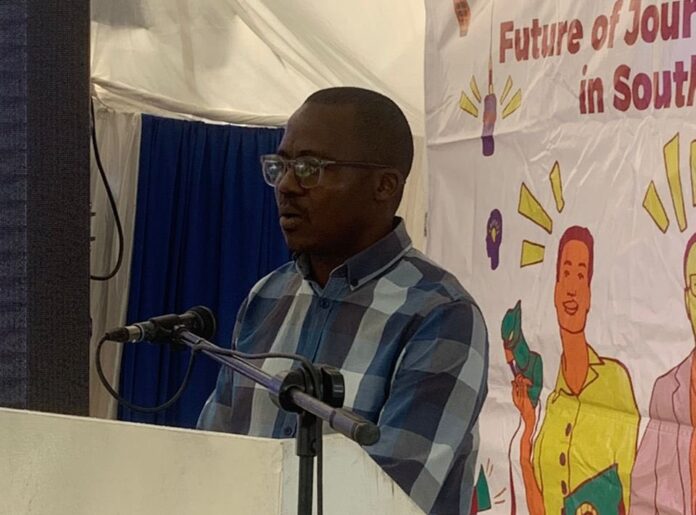By Juliet Akoth
Nairobi, Kenya: In the realm of newsrooms across Africa, Artificial Intelligence (AI) stands as a potential game-changer. Journalists, often wary of its implications, fear potential job losses with the automation of operations. However, a new perspective emerges—AI can serve as a powerful complement to journalism. During a recent Zoom meeting organized by the Center for Innovation & Technology (CITE) in collaboration with DW Akademie, MISA Malawi & Namibia Media Trust, members of the press were guided on effectively incorporating AI into their work.
Speaking during the meeting themed Empowering AI: Enhancing Journalism Excellence in the Digital Era, CITE’s director Zenzele Ndebele underscored the importance of journalists being brought on board for AI to work properly. “AI cannot go out and gather news but it can complement the work that you do,” said Ndebele. CITE, a media organization based in Bulawayo, Zimbabwe introduced their first AI news anchor to their audiences on May 12 2023 in a bid to reduce the workload of their journalists.
“When we started the issue of distributing content on WhatsApp, we immediately had 10- 15 WhatsApp groups. We could produce the same content and share it in different WhatsApp groups and different platforms. However, this was quite hectic and we needed a tool that we could use to post content on these platforms in a much easier way and that would reduce our workload. And we asked ourselves how do we work around AI? How do we use it to schedule our posts?”, posed Ndebele.
He adds, “Social Media means that you have a global audience. When you go to sleep in Bulawayo, someone else is waking up in Australia. Yet you need all these people to see your content and you therefore need to program it as if you are a 24-hour station.”
In a bid to address the information needs on these platforms, CITE started researching the issue of AI and how they could use it to edit videos in a much quicker way because all these platforms have different content formats. The result after all the research and AI consideration was Alice. An AI presenter who helps CITE edit the videos fast and present some of the workload as they are a small team of journalists.

Alice is a female AI character who gives daily news bulletin and other programmes from Asakhe Online, a sub-branch of CITE. Her earlier version was also used to profile candidates who were vying for elective seats during the electioneering period in Zimbabwe earlier this year. The audience’s reaction and perception of Alice has been positive for the most part with studies showing that audiences are more receptive to female AI characters.
Beyond video editing, AI characters can aid in headline creation and script writing, providing inspiration when needed. However, the ethical responsibility lies with journalists to ensure the agenda set aligns with credible reporting.
This is because there have been challenges that have been encountered with AI characters. Professor Mphathisi Ndlovu who did research on the impact of Alice (CITE’s AI presenter), highlights some of the challenges of AI which include the spreading of disinformation misinformation and cultural biases in programming and it is difficult to situate them in the African context.














